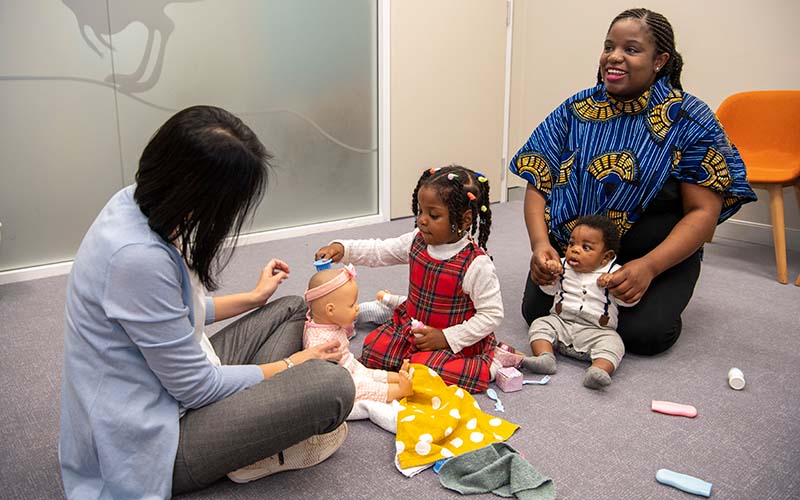Search
Showing results for "clinical trials"
Research
Developmental vitamin D deficiency produces behavioral phenotypes of relevance to Autism in an animal modelHere we investigate these features in an animal model related to autism spectrum disorder - the DVD-deficient rat
Research
Effect of different lung recruitment strategies and airway device on oscillatory mechanics in children under general anaesthesiaAtelectasis has been reported in 68 to 100% of children undergoing general anaesthesia, a phenomenon that persists into the recovery period. Children receiving recruitment manoeuvres have less atelectasis and fewer episodes of oxygen desaturation during emergence. The optimal type of recruitment manoeuvre is unclear and may be influenced by the airway device chosen.
Research
Brief Report: An Exploratory Study of the Diagnostic Reliability for Autism Spectrum DisorderWe conducted a study that examined the concordance of diagnoses between a multidisciplinary assessment team and a range of clinicians in Australia.
Research
Obesity and associated factors in youth with an autism spectrum disorderPrevalence of overweight/obesity in children and youth with autism spectrum disorder, and associations between weight status and range of factors
Research
Identification of subgroups of children in the Australian Autism Biobank using latent class analysisThe identification of reproducible subtypes within autistic populations is a priority research area in the context of neurodevelopment, to pave the way for identification of biomarkers and targeted treatment recommendations. Few previous studies have considered medical comorbidity alongside behavioural, cognitive, and psychiatric data in subgrouping analyses.
Research
Reliability of the Commonly Used and Newly-Developed Autism MeasuresThe aim of the present study was to compare scale and conditional reliability derived from item response theory analyses among the most commonly used, as well as several newly developed, observation, interview, and parent-report autism instruments.

The Kids' autism research takes place at CliniKids, a centre that integrates world-class research with a clinical service for children with developmental delay and/or autism and their families.
Research
In vitro antibacterial activity of Western Australian honeys, and manuka honey, against bacteria implicated in impetigoImpetigo is a contagious skin disease caused by Staphylococcus aureus and Streptococcus pyogenes. Without treatment, impetigo may be recurrent, develop into severe disease, or have serious, life-threatening sequelae. Standard treatment consists of topical or systemic antibiotic therapy (depending on severity), however, due to antibiotic resistance some therapies are increasingly ineffective.
Research
Lessons learnt during the COVID-19 pandemic: Why Australian schools should be prioritised to stay openIn 2020, school and early childhood educational centre (ECEC) closures affected over 1.5 billion school-aged children globally as part of the COVID-19 pandemic response. Attendance at school and access to ECEC is critical to a child's learning, well-being and health. School closures increase inequities by disproportionately affecting vulnerable children. Here, we summarise the role of children and adolescents in Severe Acute Respiratory Syndrome Coronavirus 2 (SARS-CoV-2) transmission and that of schools and ECECs in community transmission and describe the Australian experience.
Research
International Pediatric COVID-19 Severity over the Course of the PandemicMultiple SARS-CoV-2 variants have emerged over the COVID-19 pandemic. The implications for COVID-19 severity in children worldwide are unclear. The objective was to determine whether the dominant circulating SARS-CoV-2 variants of concern (VOCs) were associated with differences in COVID-19 severity among hospitalized children.
